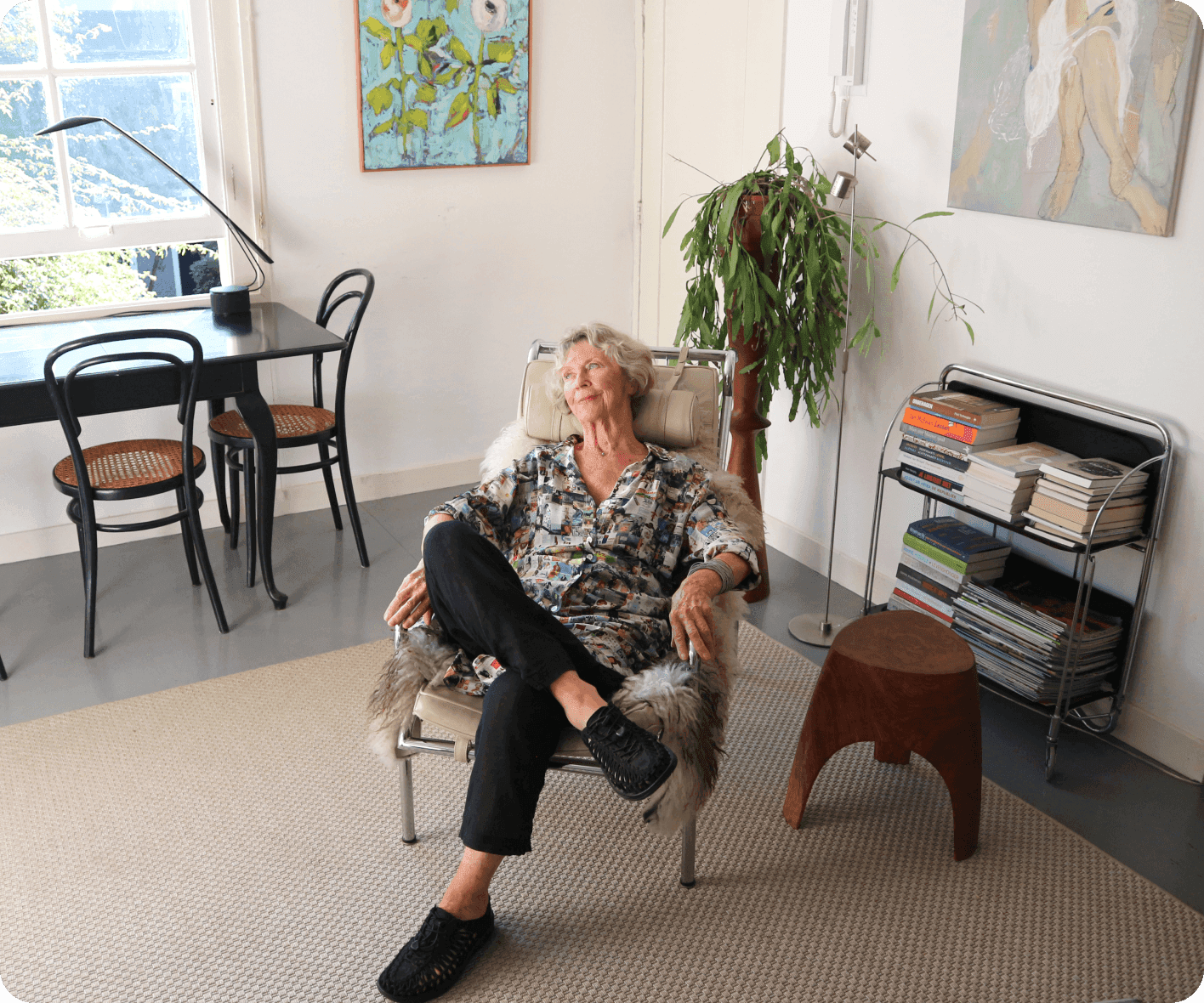At home with Ineke
Next up on our home visit series, where we go to your house to get to know you, your style and your relationship with secondhand and design. This time, we went to meet Ineke (81), born and raised in Amsterdam. She lives in one of the most charming courtyards in the city centre of our capital, and her small apartment is a true treasure trove.
WHOPPAH PORTRAITS



Thank you for welcoming us into your beautiful home, Ineke. Could you tell us a bit about yourself? Who are you, where are you from, and what do you do?
I’m Ineke, 81 years young. Born in 1943 in the heart of Amsterdam, just before the Hunger Winter, I have lived in this beautiful city for almost my entire life. When my children were born, we moved temporarily to Landsmeer, where they spent their childhood. After my divorce at fifty, I found my way back to Amsterdam, my beloved city. During my working life, I volunteered at a women’s refuge, helping women find a safe place. But there’s more. At 45, I embarked on a new adventure by taking over a small shop from a friend who was an interior designer. My daughter and I ran the shop, focusing on accessories and gifts. It was a special time; we often went to fairs in Paris and Utrecht to source the most beautiful items. We enjoyed it for 25 years, until we unfortunately had to close the shop three years ago, partly due to the impact of COVID-19.


At fifty, you returned to Amsterdam. What drew you to this house?
After my divorce at fifty, I was looking for a place that truly felt like home. When I discovered this apartment, I knew immediately it was the right choice. It’s in the heart of the city, which I love, but still offers a quiet and cosy atmosphere. It’s a compact two-room apartment in a charming courtyard, and that’s just enough for me. (Editor’s note: The courtyard on Elandsstraat in Amsterdam is a charming, hidden enclave in the Jordaan, surrounded by historic houses with ornate facades, where tranquility and simplicity meet amidst the vibrant city. Courtyard buildings are typical dutch bulding built in the 17th century by rich families to offer charity and protection to elderly widows, for free, in the last years of their life.) I’ve always decorated it in my own way, and it still feels like a little wonder. Here, I’ve shared many beautiful moments with my children and friends, and I am still incredibly happy here.




Let’s dive into your personal style. How would you describe your interior style?
My interior style revolves around personality and comfort. Sleek, stylised spaces are not for me; I love creating a warm atmosphere with objects that have meaning to me. Books and art play a significant role—without books or art, a home feels soulless to me. I enjoy combining furniture and art that truly suits me, such as a table by Le Corbusier with Thonet chairs, or a beautiful batik by a Belgian artist. Each piece tells a story, and that gives my interior its unique character.


Where do you find this inspiration?
My inspiration comes from all over. Designers like Corbusier, art books, and special shops—it’s not about one particular style for me, but about a feeling. Sometimes I discover something in a design store like Maupertuus in Groningen, even though it’s often above my budget. Still, I manage to find something special, whether it’s an Italian-designed chair or a tray from Pols Potten. I let myself be guided by what speaks to me, regardless of where it comes from.






Is there something you’re currently obsessed with?
At the moment, I’m completely fascinated by lighting and candles. I always have candles burning for the atmosphere, even though my daughter says it’s unhealthy. (Editor's note: Opt for beeswax or soy candles with natural, fragrance-free ingredients for a healthier, non-toxic alternative that you can safely enjoy every day.) Additionally, I pay a lot of attention to the right lighting in the house, as I find lighting much trickier than furniture. My classic Artemide lamps are a favourite; they are timeless and suit any setting. I always try to find the perfect balance between functional light and ambient lighting, especially for reading or highlighting artworks. For me, it’s important that it not only looks beautiful but is also practical.


What do you consider important when choosing a piece?
When choosing a piece, it’s important to me that it has a deeper meaning and tells a story. Last year, when I was almost eighty, I met the remarkable artist Mariejo Hermans. She was working on a project about the power of vulnerability in women over seventy and wanted to create paintings of women who still had much to share despite their age. She invited me to participate, and although I had never posed nude for a painting before, I decided to do it. The result was a beautiful painting that was displayed during an exhibition. It was a unique experience that deeply moved me, and I’m incredibly happy with it.







““For me, a home without books or art is simply soulless.””









Are there other factors you consider when choosing a piece?
When choosing a piece, I mainly focus on how it integrates with the overall atmosphere of my interior. It should seamlessly fit with the rest of the space and have a harmonious appearance. For me, it’s about contributing to a warm and cosy ambiance without being too prominent.


Do you have any tips or lessons you’d like to share, either for young people or other interior enthusiasts?
If I could give one tip to young people and interior enthusiasts, it would be to avoid ‘vanilla’ interiors and the uniformity of only natural colours. These styles can often feel less daring and personal, especially for the younger generation. Although my grandson has a beautiful interior, I sometimes miss the coffee table books and unique accessories that give a space real character. It’s important to stamp your own mark and showcase your personal style. Each generation has its own preferences, but by adding unique elements, you make your interior truly your own.











“Avoid 'vanilla interiors' and the uniformity of only natural colours.”











Did you start buying second-hand at a young age, or was that something that came later when you moved back here?
When I was young, buying second-hand didn’t really cross my mind; I leaned more towards new items. Back then, there weren’t many second-hand options available either. It was only later, with the rise of Marktplaats, that my interest in second-hand purchases began to grow. I’ve never visited many thrift stores, though I know they often have hidden treasures. For me, second-hand buying is really something from recent years—actually, when I discovered Whoppah!


What kind of second-hand shopper are you? Are you a collector or more of a careful curator?
I see myself as a passionate enthusiast with a keen eye for design. Instead of collecting everything, I am more of a careful curator. I choose only the pieces that truly resonate with my taste and style. Although my friend, an interior designer, has a different approach, I believe it’s important to follow your own feelings and preferences when decorating. It’s more important to embrace your unique style than to blindly follow trends or advice.




How did you come across Whoppah, and what drew you to it?
I heard about Whoppah through word of mouth and was immediately excited. The idea of buying design furniture second-hand, for a fraction of the new price, really appealed to me. Since then, I’ve regularly checked their offerings. It’s a fantastic way to find special and unique items at attractive prices. The prices vary, and the collection often changes, so sometimes you need a bit of patience and to check back occasionally. It has truly changed the way I shop.


What have you bought from Whoppah?
On Whoppah, I found a beautiful classic tea trolley. It was exactly what I was looking for, and when I saw it on the site, I was immediately enthusiastic. The seller was in Rotterdam, so I drove there to pick it up. It turned out to be a fantastic find, especially since the trolley is such a charming and practical addition to my home. I don’t use it for drinks but for my books—which makes it even more special. I also found a stunning Studio PAF Dove table lamp via Whoppah. It was truly a bargain: normally this lamp costs around €500, but I got it for just €70. The lamp came from Belgium and was in excellent condition. I was thrilled with this find—it really felt like a successful bargain hunt! Other items I’ve purchased via Whoppah include a Gelderland two-seater sofa, an Artemide wall lamp, and a Herda table lamp.










“A space should feel harmonious and invite you to spend time in it.”









What are you currently looking for?
I’m looking for a three-seater sofa that’s a bit larger than my current two-seater. It needs to be stylish and comfortable, and a lovely addition to my living room. I enjoy continually improving my space, and a sofa that provides that extra bit of cosiness and space would be perfect.


What makes your house feel like a home to you?
A place truly feels like home to me when it’s authentic and personal. It doesn’t need to be exactly my style, but if the space has a unique atmosphere that reflects the personality of its inhabitants, then I feel at home. Details like candles, books, and magazines contribute to that warm and personal ambiance. It’s these elements that make a house special and distinguish it from the rest. It’s about creating a harmonious feeling that invites you to spend time in it. That’s what truly makes a space a home.











Thank you for having us, Ineke!








Read our other blogs too
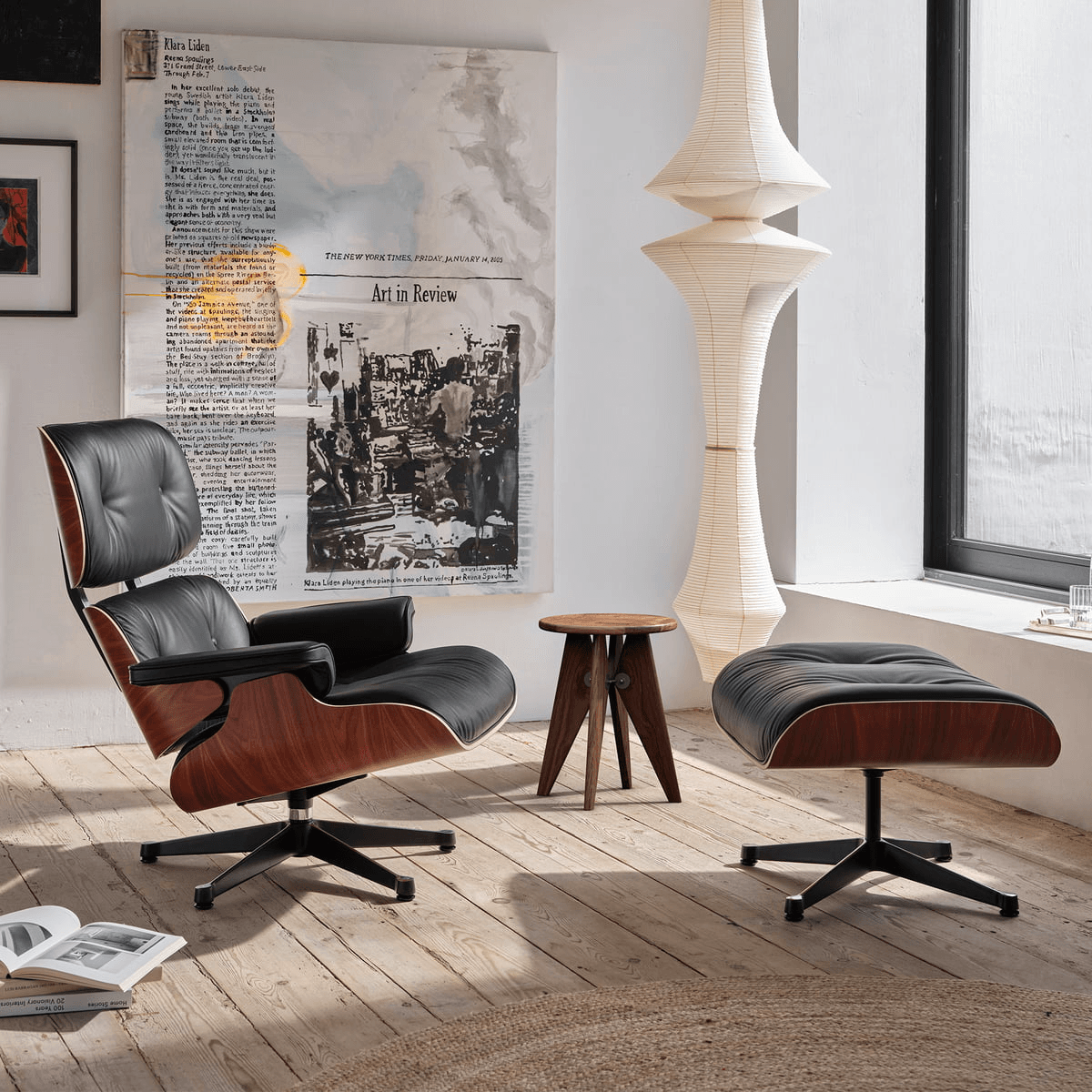
Whoppah explores: Eames Lounge Chair
The Eames Lounge Chair is undoubtedly one of the most popular lounge chairs ever made. The iconic chair was released by The Herman Miller Company in 1956 and is here to stay. Do you dream of such a beautiful copy? We share 5 facts about this legendary lounge chair and we spoke to Aksel, Eames connoisseur and trader, about the differences between the vintage and recent models of this chair.
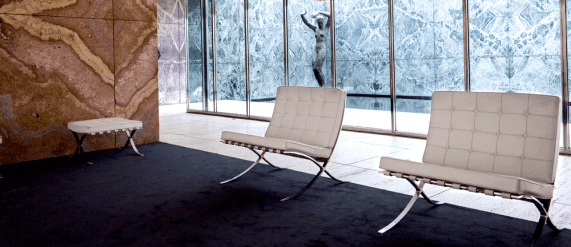
Whoppah explores: Ludwig Mies van der Rohe
One of the most iconic design chairs is the Barcelona Chair by Mies van der Rohe. The chair was exhibited in 1929 during the World Exhibition in Barcelona and is one of the best-selling designer armchairs ever. It is amazing how a chair has not lost its popularity for more than 90 years and remains a symbol of elegant and modern design. That is why this week is an ode to architect and furniture designer Mies van der Rohe.
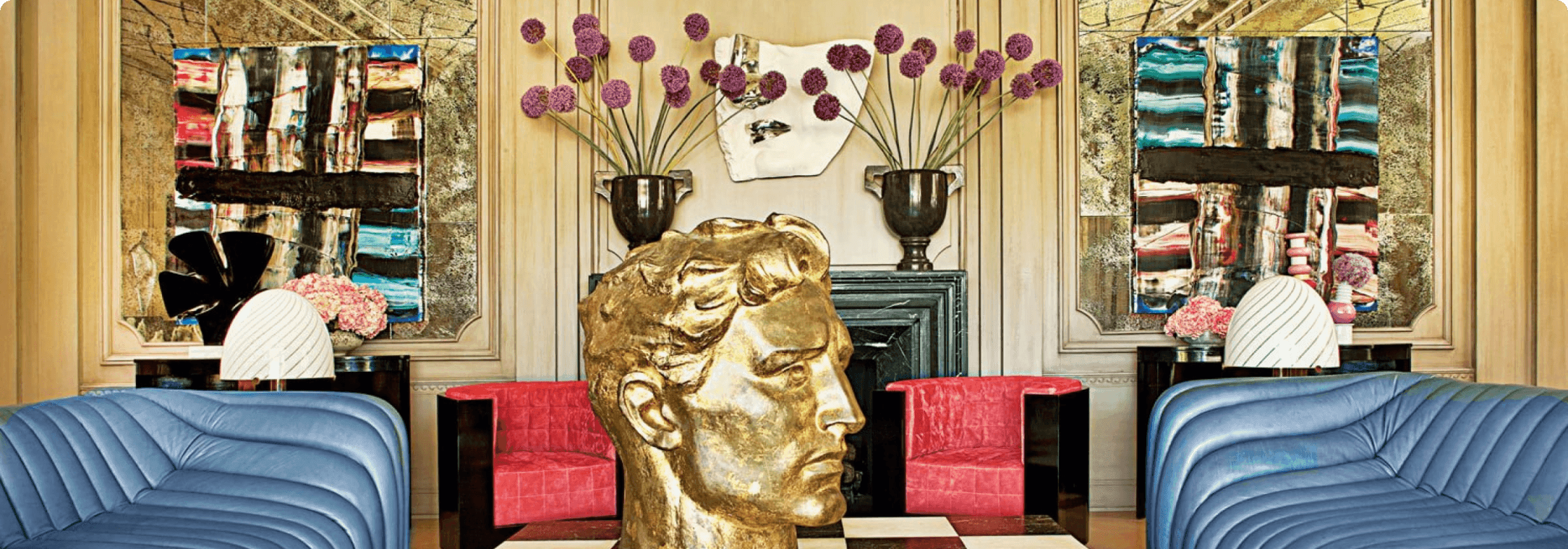
Whoppah explores: Frank Lloyd Wright
Frank Lloyd Wright was one of the most influential architects of the twentieth century. It's high time to find out more about this world architect!
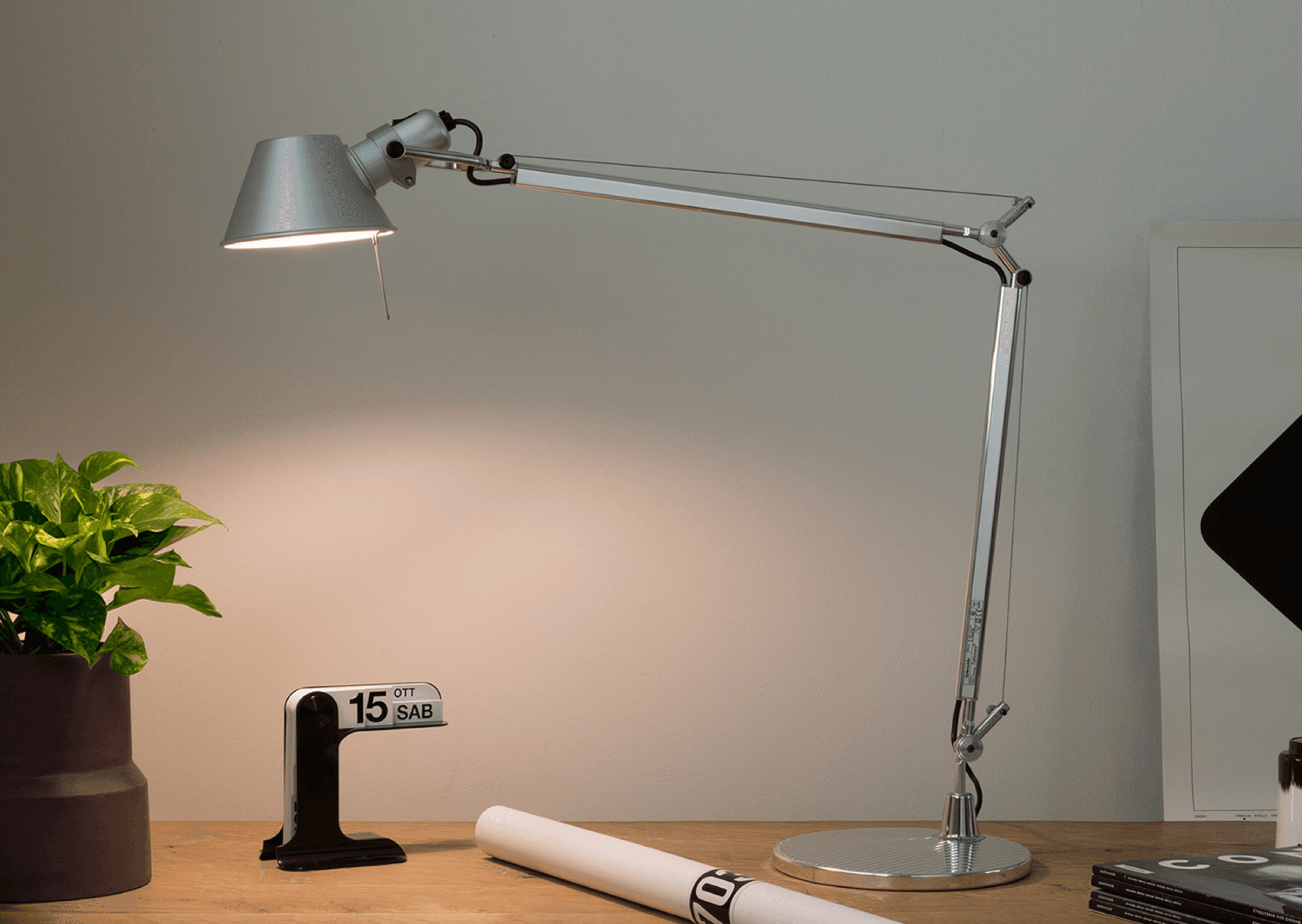
Artemide: Illuminating Innovation and Timeless Design in Italian Lighting
Artemide is known as the leader in Italian design lamps. For over 60 years, they have been bringing innovative lamps to market that are characterised as 'design classics'. My admiration for this brand is great, because staying at the forefront of innovative design for 60 years is a remarkable achievement. This week, we dive into Italian brand Artemide with Whoppah explores.
